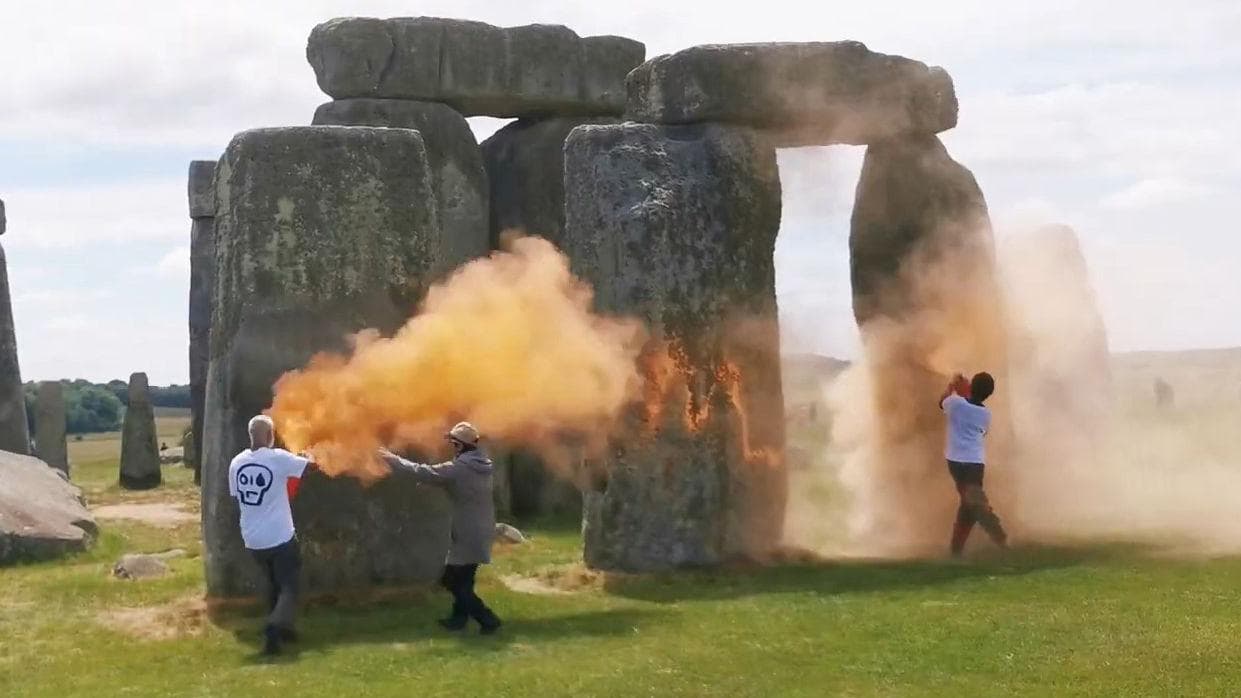Just Stop Oil Activists Acquitted in Stonehenge Case, Citing Human Rights

Salisbury Crown Court has acquitted three Just Stop Oil activists—Rajan Naidu, Niamh Lynch, and Luke Watson—who sprayed Stonehenge with orange powder in June 2024. The jury returned a not-guilty verdict on charges of damaging an ancient protected monument and causing a public nuisance, concluding a 10-day trial. The activists successfully argued their actions were a "peaceful protest" and fell under their human rights to freedom of speech and assembly.
The incident occurred on June 19, 2024, the day before the summer solstice, when Naidu and Lynch used "colour blasters" filled with cornflour, talc, and orange dye to spray the prehistoric monument. Luke Watson assisted in the planning and transportation. The protest aimed to demand a Fossil Fuel Non-Proliferation Treaty from the UK government.
During the trial, the defense cited Articles 10 and 11 of the European Convention on Human Rights, emphasizing the right to protest. Judge Paul Dugdale instructed the jury to consider whether a conviction would be a "proportionate interference" with the protestors' rights, stating that "everyone's entitled to express their own opinion" even if others disagree. The court heard that the orange powder was cleaned from the stones at a cost of £620, with no lasting damage.
Prosecutor Simon Jones had described the protest as "blatant and clear vandalism," arguing it was carefully planned for "maximum impact." However, the activists maintained that care was taken to ensure no permanent damage, and their intent was to draw attention to the climate crisis. Niamh Lynch, a Masters student, stated, "I refuse to stand by and watch as our world burns around us."
Following the verdict, solicitor Francesca Cociani, representing the activists, expressed relief, stating, "The public nuisance charge in this case... should never have been brought, and amounted to an affront to their right to protest." Rajan Naidu, 74, added that the "judicial system must wake up and begin to play its shamefully neglected role in defending us... from rapacious billionaire class climate criminals." The decision has sparked debate regarding the balance between protecting historical sites and the right to protest.